#Thierry Lentz
Text
Letter from Napoleon to his brother, Jérôme. A really interesting letter as I think it clearly displays his unique idealism:
My concern is for the well-being of your people [Westphalians], not only as it affects your standing and my own, but also because of the impact it has on the whole condition of Europe. Do not listen to anyone who says that your subjects, being so long accustomed to servitude, will fail to feel gratitude for the freedoms you bring to them. The common people of Westphalia are more enlightened than such individuals would have you believe, and your rule will never have a secure basis without the people’s complete trust and affection. What the people of Germany impatiently desire is that men without nobility but of genuine ability will have an equal claim upon your favor and advancement, and that every trace of serfdom and feudal privilege... be completely done away with. Let the blessings of the Code Napoleon, open procedures and use of juries be the centerpiece of your administration... I want all your peoples to enjoy liberty, equality, and prosperity alike and to such a degree as no German people has yet known.... Everywhere in Europe—in Germany, France, Italy, Spain—people are longing for equality and liberal government... So govern according to your new constitution. Even if reason and the enlightened ideas of our age did not suffice to justify this call, it still would be a smart policy for anyone in your position—for you will find that the genuine support of the people is a source of strength to you that none of the absolutist monarchs neighboring you will ever have.
Source: Napoleon to Jérôme, November 15, 1807, in Napoleon, Correspondance générale, ed. Thierry Lentz (Paris: Fayard, 2004), VII: 1321.
English translation: Alexander Mikaberidze, The Napoleonic Wars: A Global History
#Napoleon’s correspondence#Napoleon#napoleon bonaparte#The Napoleonic Wars: A Global History#napoleonic era#napoleonic#first french empire#Jerome#jerome bonaparte#Jérôme Bonaparte#Napoleon’s brothers#Napoleon’s reforms#napoleonic reforms#reforms#Westphalia#Germany#1807#1800s#Thierry Lentz#french empire#19th century#letter#letters
23 notes
·
View notes
Video
youtube
Here is a short video in French, with French subtitles, about our the biography favourite Minister of Police under Napoleon. English subtitles can be activated by playing with the settings. This has been produced by the Institut Napoleon and is presented by Napoleonic historian Thierry Lentz.
16 notes
·
View notes
Text
When politics gets involved in history (French Revolution part)
As a general rule, when politicians meddle in history, it often creates confusion. Today I will talk about how they handle the French Revolution.
Of course, Jean Jaures did a good job on this period, although there are naturally points to criticize. But generally speaking, our politicians allow themselves to make crude or inappropriate remarks.
There are even serious historians who fall into the trap by making political amalgamations. A few days ago, while doing research, I came across an excerpt from an article by Thierry Lentz, a respected historian, made comments in Le Figaro comparing the left-wing opposition party, France Insoumise, to the Hébertists, labeling them as vulgar. My intention on this page is not to promote France Insoumise, but to qualify the Hébertists as vulgar (I imagine he also includes the Cordeliers and the Exagérés) is not good for me (the only thing that can be qualified as vulgar is the newspaper Le Père Duchesne and Hébert's style). Moreover, what does he mean by the left's reinterpretation of the Terror? He talks about Marxist-Leninist dogma in his terms, but Lenin preferred Danton, who was not a Hébertist. Plus the Bolshevik revolution was not based on the same principles as the French Revolution. The French Revolution has democratic aspects that the Bolsheviks did not apply (I'm not saying this to denigrate gratuitously the USSR, which became Russia, let's be clear). A country that has undergone a revolution compared to another country doesn’t necessarily adopt the same principles (often because there are different contexts, different paths, etc.). And reducing the Hébertists, Cordeliers, or Exagérés to the Terror is quite reductive (I have already expressed my thoughts on the Cordeliers in one of my posts).
Moreover, in left-wing parties, from what I have observed, it is rather the character of Babeuf that is taken up, considered as the father of communism (I once met a communist who saw Momoro as a reference and another who prefer Marat), while France Insoumise is something else (we can rather place Robespierre in the radical left, but I don't think he would have been a socialist, and we can be sure he was not a communist). So why once again Thierry Lentz associates France Insoumise with Trotskyism and Marxist-Leninism for taking up Robespierre? I mean, okay, there were communists who admired Robespierre like Stellio Lorenzi, but clearly not as many as one would think.
While Lentz's expertise in French history is widely respected, such political analogies raise questions about the neutrality of historical interpretation.
Moreover, it is interesting that the fact that "La Caméra explore le temps" rehabilitated the Montagnards led to the end of the program because of the Gaullist government. Once again, politics gets involved in history and leads to very bad results.
Now it's President Macron's turn. With Stéphane Bern, the president started to explain that an edict signed in 1539 by François I imposed French as the sole language in France. However, historian Mathilde Larrère says it was the French Revolution that imposed French as the sole language on the French. Once again, politics in history can lead to bad results.
I won't even talk about certain elements of the far right who claim to be followers of Robespierre because that would be giving them publicity, and it's not my vocation.
Now let's move on to Mélenchon from the France Insoumise party, who also made significant historical errors during this period. First, in one of Robespierre's videos, he calls Marie Antoinette a "spoiled brat." Accusing the former queen of treason I understand, she gave all the information she could to the enemy, but when you hear "spoiled brat," you're passing a value judgment that has nothing to do with it. Finally, he invents a marriage of Pauline Léon, saying that she ended her life in bourgeois fashion with a Girondin.
Moreover, Melenchon explain that the extreme left of the time was manipulated by the corrupt who arrested Robespierre. Okay, there were Billaud-Varennes and Collot d'Herbois in the mix, but you can't tell me that the Plaine was part of the extreme left. Moreover, most of the elements of what was called the extreme left were either in prison, like Claire Lacombe, Pauline Léon, Jean-François Varlet, or eliminated, like Chaumette, Momoro, Ronsin, and Hébert at the time of 9 Thermidor.
Moreover, contrary to what Mélenchon suggested, Chaumette and Hébert were not part of the Enragés movement.
In the end, this is the problem when our politicians try to shape history to fit their agendas. It leads to significant inconsistencies and inaccuracies.
20 notes
·
View notes
Text
Joseph and the ladies
Even Thierry Lentz, very well disposed towards Joseph and really trying to show in his book that Joseph was much more than the weakling he is often perceived as, is quite open about how Joseph spent his free time from the job as king of Spain:
In the Royal Palace or in La Moncloa [a country house], Joseph indulged in two of his favourite private activities: getting rich and loving.
With regards to the first activity, there’s a long story involving, among other things, the crown jewels of Spain, of which a certain amount at some point disappeared from Madrid (Napoleon blamed it on Murat but later learned that the thief had been his brother dearest). And as far as the second activity is concerned, Lentz of course also names the Marquise de Montehermoso, »non exclusive holder of the title mistress« [maîtresse en titre non exclusive]. But there are more. Plenty more.
So many that Colonel Desprez, Joseph’s clumsy aide de camp who had gone all the way to Moscow in order to hand Napoleon a letter of complaint, would later have some acerbic comments on his former master, put together in a report called »Caractère du roi d’Espagne, Joseph Bonaparte«. But this was indeed much later, after the fall of the empire, during the July monarchy, and – possibly on demand of one Marshal Soult . (The question of allowing the exiled Bonaparte family back into France frequently came up.) Soult and Joseph obviously kept up their mutual dislike a long time after Napoleon’s death.
Desprez in this report comments about the Marquise de Montehermoso as follows [quoted in Thierry Lentz, »Joseph Bonaparte«]:
This woman had an exquisite mind, a strongly organised head [...]. She didn't know anything about love other than the physical pleasures and she readily acknowledged this [...]. Her constant aim was to become rich [...]. The weak prince poured out showers of gold and, although forced to use this means, he never ceased to believe himself tenderly loved […]
and about Joseph’s way of life in Madrid in general:
I have often groaned to see a man called to such a prominent role waste his time in vain occupations, laying out paths, planting trees, tearing down walls, building others, changing at every moment the comings and goings of his chambers; giving parties [...], supervising the preparations himself, reading tragedy and repeating to exhaustion the passionate roles of which he thought himself suited to express the delirium [...]. I laugh with pity to see a king, whose throne is trembling, exhaust his attention on hemistichs [...].
But not everyone judged Joseph so harshly. Somebody who seems to even have greatly admired Joseph’s success with women is another aide de camp, General Bigarré. That’s not all too astonishing, as Bigarré’s own memoirs are a crude mix of brutalities, battle scenes, and lewd descriptions of himself seducing teenage girls. About Joseph he says:
In Spain, as in Naples, this prince has been bitterly criticised for occupying himself a little too much with women during the time he governed these two kingdoms. I will agree that he had a particular fondness for this sex, that he did not disdain conversations with the liveliest ladies of his court, that he was even very gallant with several of them, but nevertheless, I repeat, he never forgot what his duties as sovereign required of him.
Which is something, I guess. About Joseph’s entry into Sevilla and his tour around Andalusia, Bigarré also has an interesting remark:
The noble Andalusians, for their part, did not know what to think of in order to show the new King of Spain their love and devotion; some sent him a dozen magnificent bulls as a present, others perfectly harnessed Andalusian horses, and several placed their wives, daughters and houses at His Majesty's disposal. [...]
Hello there, strange French king! Here’s my bull, my horse, my house, my wife, my daughter – take your pick!
[…] the ladies of Sevilla who were invited also found the King of Spain very amiable and attractive. It is a fact that this prince had a wonderful gift for pleasing women. I do not know whether winning over women formed part of his policy, but in all the cities he visited he made many conquests, not only as a king, but also as a man.
Bigarré’s admiration here is palpable.
Bigarré also must have been very well informed about Joseph’s successes in this field, as apparently (according to Thierry Lentz), Joseph took care of Bigarré’s favourite mistress, a Madame Finesi, wife of an Italian actor, whenever the general was on a mission out of town. Bigarré in turn claims to once have had a fling with the Marquise de Montehermoso. But as Napoleon’s police spy Lagarde wrote home, these were hardly the only ladies whose company distracted Joseph from his »political chagrin«. Lentz also lists a Marquise de Jacuso and a Nancy Derrieux, wife of some official in the administration, as regulars in this early 19th century edition of a royal swinger club. Varying female extras were approached through Joseph’s valets, who habitually had to adress young ladies about their willingness to meet the king in private.
For the final judgement on this topic, here’s Napoleon, in Bertrand’s »Cahiers de Sainte Hélène«, echoing what cardinal Ruffo had told him:
Prince Joseph had gentle manners, fine qualities, but he could never attend to business and never pursued anything. He was locked up with a few women, not to fuck all the time, but for the pleasure of society.
Yes, that’s Napoleon using the F-word with regards to his brother. And I honestly do not know if he wanted to somehow excuse Joseph in emphasizing that it was only »for the pleasure of society«, or if he wanted to make sure people didn’t think too highly about Joseph’s stamina...
53 notes
·
View notes
Text

And you can read all about it here. Apparently Napoleonic historian Thierry Lentz will be hosting some of the conferences/lectures during the cruise, so hopefully it will be more historically accurate than this article, which claims that Napoleon was captured in Belgium in 1815.
The starting rate for the cruise is $13,080, so unfortunately I’ll have to sit this one out.
41 notes
·
View notes
Text
La fin des grands empires et des civilisations
“Nous autres, civilisations, savons que nous sommes mortelles”, écrivait Paul Valéry au lendemain de la Grande Guerre… Perse, égyptien, inca, aztèque, maya, grec, romain, moghol ou, plus tard, européens puis américain… les empires se sont effondrés un à un, avec les civilisations qui les avaient portés, le plus souvent non dans la guerre, mais parce qu'ils ont “pourri” de l'intérieur. Et il semble qu'il y ait comme un plafond de verre : très peu d'Empires ont dépassé les 250 ans de notre “paradigme” européen. L’Histoire pourrait-elle nous convoquer devant son tribunal ?
La naissance et la fin des Empires a toujours exercé une forme de fascination, que montre le nombre de livres sur “The rise and fall of the XYZ Empire”, –Vie et mort de tel Empire. Depuis la nuit des temps, certains peuples ont imposé leur domination, pour une cause identifiable : le fer, l'or, la foi ou l'esprit –mais jamais le hasard. Plus tard, ils ont tous disparu (“Tout empire périra”, dit un adage jamais démenti), pour des raisons multiples : crises de croissance, allongement sans fin des lignes de contrôle, non-assimilation des populations conquises, épuisement de “la source” (généralement : une ville, un roi guerrier), paupérisation économique, affaissement du modèle, faiblesse militaire ou apparition et renforcement de rivaux intérieurs et extérieurs. L’ambition ou le rêve d’être universel et éternel finit toujours par se heurter à la résistance de plus fort que soi, et le temps-qui-passe multiplie les opportunités de voir se dresser des “challengers’‘ qui rêvent de contester ce qui est, au nom de leur propre ’'être” ou du refus de leur “avoir été” soumis ou vaincus.
“La fin des empires” (Editions Perrin), sous la direction des historiens Patrice Gueniffey et Thierry Lentz, raconte, explique et analyse la naissance, le déclin et la chute des plus grands empires, depuis le génie militaire d'Alexandre le Grand… jusqu'au soi-disant soft power économico-politique de Washington (le plus brutal et le plus impitoyable n'étant pas forcément celui qu'on croit !), en passant par le modèle romain dit “classique” et son héritier byzantin, par les empires des steppes (Attila, Gengis-Khan, Tamerlan), l'Empire ottoman, les empires amérindiens et le binôme latino-continental espagnol, précédant le XX ème siècle des idéologies (1914-1991) qui a vu tour à tour s'effondrer l'empire des Habsbourg, le IIIe Reich, le Japon militariste, puis, après la guerre froide, le communisme soviétique, héritier inhumain et épouvantable de l'impérialisme séculaire de la dynastie des Romanov.
Brisés dans leur histoire par les deux guerres mondiales, par la faillite des totalitarismes et par le déclin de l'Europe qui avait peu ou prou dominé le monde depuis le XVIe siècle, les empires ont pu sembler condamnés avec “La Fin de l'histoire” (F. Fukuyama –1992). Mais si les empires existants disparaissent, tout se passe, en fin de compte, comme s'il existait une cause cachée, de nature humaine, que mon maître André Siegfried désignait par “L'Ame des peuples” (une anecdote “perso” : dans les années ‘55, j'empruntais les “cartes” de mes amis pour aller suivre ses cours à Sciences Po, avant de le retrouver, plus tard et plus officiellement, au Collège de France où j’ai eu la chance de mieux le connaître)
Car l'impérialisme, même mort, semble renaître sans cesse de ses cendres : les avatars de la Chine, l'éternel retour de la Russie, les rêves “ottomaniaques” d'Erdoğan, le poids sans cesse renouvelé des Etats-Unis, et même “l'Umma” arabo-musulmane, ce rêve de la “renaissance” d'un califat fantasmé… tout, dans l'Histoire, exprime la nostalgie de temps “heureux”, même inventés, comme le rêve islamiste (cf. “La gestion de la Barbarie”–2004). A l'opposé de ce programme ravageur, “La fin des empires” est essentiel pour connaître hier, comprendre aujourd'hui, et prévoir demain. C’est, plus qu'un livre d'histoire, une étude sur l'Histoire, car… quels points communs peut-on trouver, intuitivement, entre la Grèce antique, les empires mongol puis moghol, le IIIe Reich allemand, les empires coloniaux français ou portugais et l’empire aztèque, par exemple ?
Et pourtant, il ne se peut pas qu'il n'y en ait pas : depuis 5000 ans, des organisations politiques ont rassemblé des peuples, des langues et des religions sous la férule d’un empereur “en armes” prétendant peu ou prou à une vocation ou à un destin universels. Résultat : un “Empire” ne se définit pas par son étendue (l’empire napoléonien “fait’'8,6 millions km² en 1811, et l’empire des steppes fondé par Gengis Khan, 33 millions km² à son apogée, du Pacifique à la Turquie actuelle)… ni par la durée (mille ans pour l’Empire byzantin, sept ans pour le IIIe Reich)… ni par une religion (il existait 30 000 dieux, vernaculaires ou importés, dans la Rome Impériale… d'où sans doute la célèbre expression : ’'Ils sont fous, ces romains’’ !)… et encore moins par le mode de gouvernement qui va d'une large autonomie aux peuples soumis (Athènes, Rome) à une centralisation paranoïde (la Sublime Porte, la Grande Russie, ou la tentation de l'ogre dit ‘’européen’’ actuel).
Les raisons de la création d'un Empire sont peu nombreuses et bien connues : il faut et il suffit d'un homme qui en rêve, d'un dieu qui le soutient, et de quelques critères de nature militaire : les armes de cuivre des hittites ne pouvaient que se rompre devant les épées de fer des égyptiens, les flèches des Incas devant les tromblons des Conquistadores, la flotte vénitienne devant le ’'feu grégeois” et l'Europe de 1800 devant l'idée de Napoléon de faire se déplacer les unités de la Grande Armée plus vite que tous ses ennemis, “d'Espagne en Autriche” (cf le célèbre monologue de Flambeau). Mais aussi notre belle infanterie devant la ruée des Panzers de Gudérian, en mai 40, et notre armée conçue pour l'Europe devant les mille ruses des “Bộ đội” fanatisés de Ho Chi Minh… L'idée motrice, finalement, serait une tentative d'arrêter l'histoire (en la figeant dans une structure dont la taille assurerait une forme d'éternité) même si cette tentation a toujours été vouée à l’échec… ce qui n'empêche pas la vraie fascination qu'elle continue d'exercer.
En revanche, les causes de leur effondrement sont multiples : l’ambition d’universalité se heurte aux résistances… le temps qui multiplie les opportunités … l'administration de territoires immenses… les mécanismes de succession (cas de l’empire carolingien et de l’empire mongol, qui éclatent en autant de royaumes que d’héritiers)… la désagrégation interne (pour l’empire soviétique)… la faiblesse ou la folie (Hitler et Staline, ces frères ennemis)… le coût du maintien d'un un appareil militaire suffisant (la principale menace pour les États-Unis)… les intrigues pernicieuses de la Cour ou du Harem (la Sublime Porte)… et le recours aux troupes mercenaires (Rome, et dynastie Qing, en Chine)… l'inconscience des menaces et la trahison (Byzance)… l’inutilité de la super-structure du Saint Empire romain germanique…. Les causes sont nombreuses : presque autant que les Empires !
Que nous réserve la suite ? En fin de compte, se pencher sur la fin des empires, c’est s’interroger sur leur retour, favorisé par le déclin de l'Europe : la chute de l’Union Soviétique semble avoir été le dernier épisode de la notion classique d'Empire… (en pire… si j'ose !), même si l'évolution de la construction bruxelloise nous fait régresser vers l’époque médiévale du Saint Empire romain germanique –qui avait réussi à coiffer des duchés et des cités dans un ensemble à peine moins inconsistant que l’actuelle Union Européenne, en tentant –c'est patent dans le second cas– de contrer l'Etat-Nation, en le décrétant, contre toute évidence, populiste, réactionnaire, démagogue ou europhobe, voire “illibéral” – ce qui ne veut rien dire. Mais rien ne les arrête : ils se croient à l’abri et osent tout et n'importe quoi
Ce concept d'Etat-Nation, qui a “fait” l'Europe, est né au XIII ème siècle en France quand Philippe Auguste a décrété : “Le Roi est Empereur en son royaume”, illustration d'une volonté de renforcer l'institution royale et d'assurer sa suprématie sur toute autre puissance. L’État-Nation connaît ses débuts réels à la Renaissance et devient la forme normale d’organisation politique dans la seconde moitié du XIXe siècle. Paradoxalement, c’est en Europe et par l'Europe-institution qu’il semble se déliter maintenant, dans un pas de deux entre les “modèles” d'Empire et d'Etat-Nation.. Que nous réserve la suite ? L’avenir semble hésiter entre des empires économiques (USA), théocratiques (l'islam) ou iso-messianiques (Chine), la pérennité d’États-Nations, l’Europe-institution déjà ratée, d’autres formats à créer…
H-Cl.
PS. : Dans mes recherches pour cet éditorial, je suis tombé sur la liste des dix plus grands empires de l'Histoire, ce qui pourrait intéresser certains d’entre vous, Amis lecteurs. ‘‘Sic transit gloria mundi‘’ : voilà comment disparaît la gloire du monde… Cette liste, recopiée ‘’in texto’’, raconte une autre vision de l’Histoire du monde : une nette domination des pays ‘’du Croissant d’or’’ jusque vers l’an mil de notre ère, puis l’Asie jusqu’au XIIIè siècle… et l’Europe ensuite (l’Empire Américain qui en est le pseudopode n’est pas mentionné dans cette étude : il est trop flou dans ses limites mais nous savons qui est le chef, aujourd’hui). Et demain ? Qui ? Où ?
1 - Empire britannique (35 500 000 km2 en 1920)
2 - Empire Mongol (33 200 000 km2 en 1279)
3 - Empire russe (22 800 000 km2 en 1895)
4 - Empire espagnol (22 000 000 km2 en 1810)
5 - Dynastie Qing (14 700 000 km2 en 1790)
6 - Empire colonial français (13 500 000 km2 en 1939)
7 - Califat abbasside (11 100 000 km2 en 750)
8 - Califat omeyyade (11 000 000 km2 en 720)
9 - Dynastie Yuan (11 000 000 km2 en 1310)
10- Empire colonial portugais (10 400 000 km2 en 1820)
10 notes
·
View notes
Note
What (book(s)) are you reading right now?
Hi Anon, I answer with a little delay, as usual :)
Today, I'm reading several books in French:
Michel Vergé-Franceschi, Charles Bonaparte - Le père de Napoléon or Charles Bonaparte - The father of Napoléon

Charles-Éloi Vial, Napoléon - La certitude et l'ambition or Napoléon - Certainty and ambition
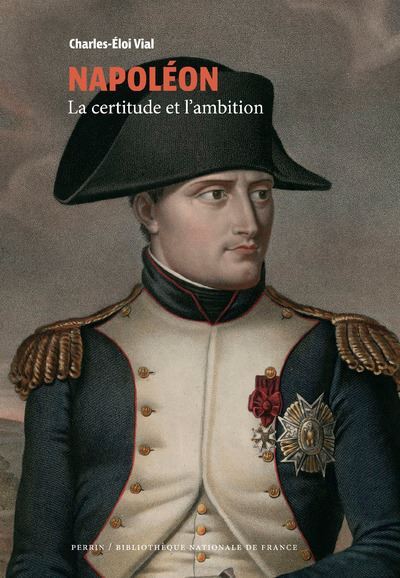
Thierry Lentz, Napoléon III - La modernité inachevée or Napoléon III - Unfinished modernity
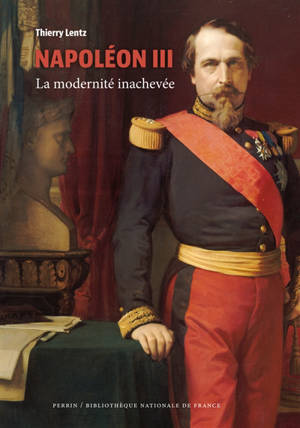
Maxime Michelet, Napoléon III, la France et nous or Napoléon III, France and us
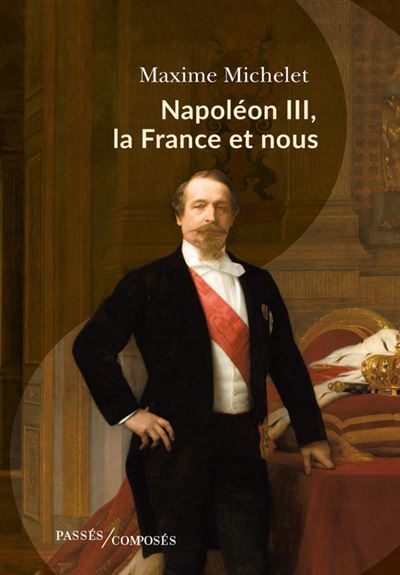
I don't have time to read anything but Napoléon ! I can't read one book at a time either
3 notes
·
View notes
Text
Napoléon, Joseph, Louis, Caroline et les autres, vus par Thierry Lentz
Le dernier essai de Thierry Lentz, une biographie de l’aîné des Bonaparte, Joseph, met en évidence les ressorts du « système napoléonien ». Une formulation qui est de Napoléon lui-même lorsqu’il confie à Las Casas : « Une de mes plus grandes pensées avait été l’agglomération, la concentration des mêmes peuples géographiques qu’ont dissous les révolutions et la politique (…) ; j’eusse voulu faire…
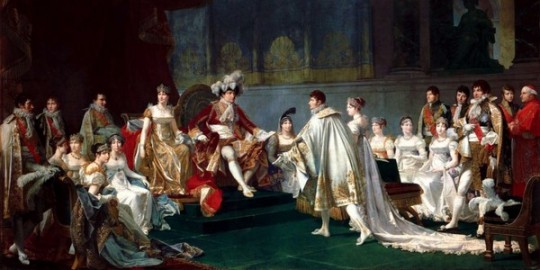
View On WordPress
0 notes
Text
Watch "Les dernières révélations sur l'assassinat de John Fitzgerald Kennedy - Thierry Lentz" on YouTube
youtube
0 notes
Text
Where Does The Name Napoleon Come From?
Author(s) : LENTZ Thierry
In addition to his genius, his ability to take advantage of circumstances, and his mastery as a statesman and military leader, Napoleon was fortunate enough to have been endowed with a distinctive first name. He himself acknowledged that it had proved invaluable to him as a means to be noticed.
Napoleon’s parents named him after a great uncle who died in 1767. Whilst not a very common first name, it was known in Corsica and spelt in different ways – “Napoleone”, “Napulione” or even “Lapulion”. Naturally, its etymology has been studied extensively. The hypothesis favoured by specialists is that “Napoleon” came from the Italian “Nevoleone”, itself from “Neapolis” (Naples) and “leone” (lion). This was not however the version of the story accepted during the Empire, when it became necessary to “find” a Saint Napoleon. When solicited by the Emperor’s uncle, Cardinal Fesch, the Vatican finally came up with (or invented) a soldier named “Neopolus”, who supposedly had been martyred under Diocletian but who probably never existed, and whose feast day was to be established, for obvious reasons, on 15 August. This day was fixed as an official holiday throughout the Empire via a decree issued on 19 June 1806, the rubrics of which specified that henceforth the 15 August would be a combined celebration of St Napoleon’s Day, the Assumption of the Blessed Virgin Mary, and also the commemoration of the “period” when the Concordat with the Pope was signed (actually dated 15 July 1801).
After the fall of the Second Empire, “Neopolus-Napoleon” disappeared from the list of saints whose days are celebrated by the Roman Catholic Church. However, the name still retains a place in Jacques Merceron’s Dictionnaire des saints imaginaires et facétieux [Dictionary of imaginary and whimsical saints] 2002.

SOURCE
#napoleon#bonaparte#Napoleon Bonaparte#Emperor Napoleon#Emperor Napoleon Ier#Emperor Napoleon I#Napoleon I#Napoleon Ier#Napoleon's name#name of Napoleon#Napoleon news#Napoleon article#Napoleon.org#Thierry Lentz#And now you know
12 notes
·
View notes
Text
Excerpt from Thierry Lentz on Napoleon and Women:

There is a widely held idea that the Consulate and the Empire put an end to the Revolutionary episode of the gradual accession of women to, if not equality with men, at least to a more equable place in society. This episode is often symbolised by the struggles of emblematic figures, such as the famous Manon Roland, Théroigne de Méricourt and Olympe de Gouges, the lesser-known Pauline Léon and Claire Lacombe, and even the more surprising Charlotte Corday and Marie-Antoinette. After the women’s march on Versailles on 5 and 6 October 1789, “women citizens” – who were in fact not legally citizens – took part in other “great Revolutionary days”, created clubs, published pamphlets and, more generally, demanded or petitioned for what was still far from being called “parity” or “gender equality”. Limited in numbers, this movement was nipped in the bud by the Convention, which repressed the leaders (several of the aforementioned heroines were guillotined), closed the women’s clubs, even postponed plans to develop education for girls and reversed the weak legislative advances that had been conceded. The first discussions on codification which began at this time confirmed this opposition, despite the maintenance of partial equality between spouses (particularly in matters of divorce) and the reduction, also very relative, of the scope of exclusions from professional life (which were not completely abolished until 1965). Social consensus, essentially created by men who alone had access to education, to the means of communication and to power, was then contrary to any idea of legal and political equality (that equality would not come until the 1970s!!). Any challenges on this point were stifled using an arsenal of different justifications, drawing on science, physiology, history, religious precepts, etc.
(Source)
#interesting#Manon Roland#Théroigne de Méricourt#Olympe de Gouges#Pauline Léon#Claire Lacombe#Charlotte Corday#Marie-Antoinette#Napoleon#Thierry Lentz#napoleon bonaparte#Bonaparte#women’s history#women#history#napoleonic era#napoleonic#convention#women’s March on Versailles#france#text post#1800s#1700s#1790s#19th century
17 notes
·
View notes
Photo

Sans idolâtrie, Thierry Lentz contextualise (mieux "se reporte à l’esprit du temps" comme disait l’Empereur) et fait taire les critiques basées sur l’anachronisme et l’ignorance. Il signe un plaidoyer pour une histoire qui comprend, une charge contre la lâcheté qui juge. Brillant
0 notes
Photo


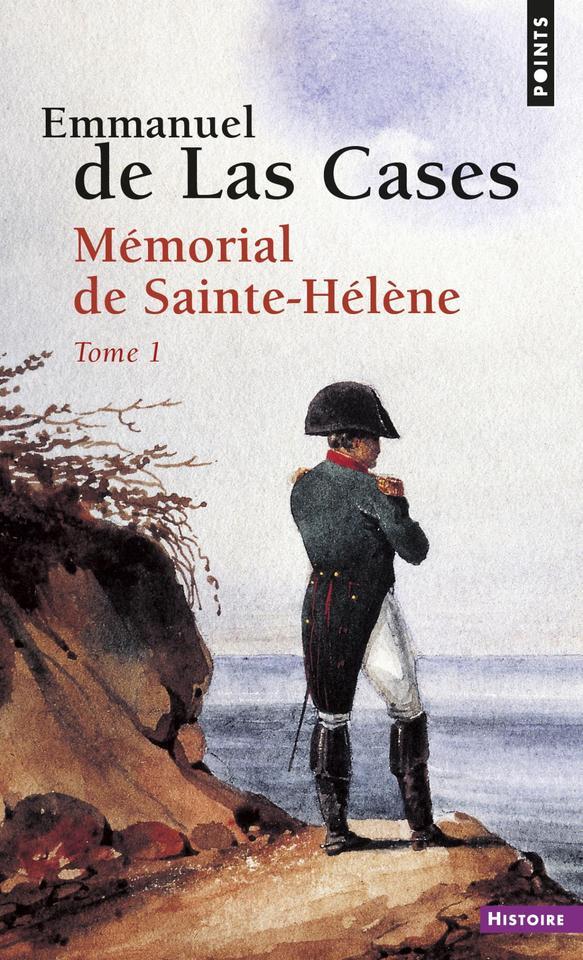





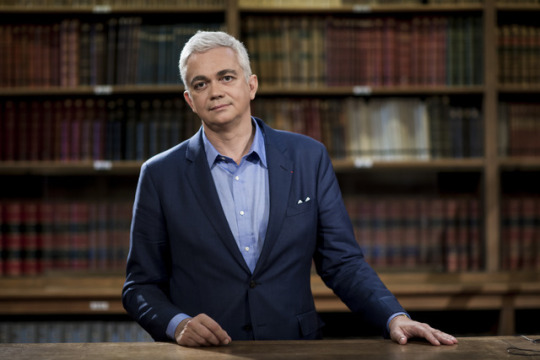

#BibliothèqueMédicis du vendredi 06 octobre 2017 présenté par Jean-Pierre Elkabbach avec :
– Thierry LENTZ, historien, pour “Le diable sur la montagne – Hitler au Berghof 1922-1924″ (Perrin) et “Le mémorial de Sainte-Hélène” d’Emmanuel de Las Cases (Perrin-Fondation Napoléon)
– Olivier GUEZ, écrivain, pour “La Disparition de Josef Mengele” (Grasset)
– Corinna GEPNER, traductrice, pour sa traduction d’Heinrich Gerlach “Eclairs lointains : percée à Stalingrad” (Anne Carrière)
– Adrien GOETZ, écrivain, pour “Villa Kerylos” (Grasset)
Photos © Eric Frotier de Bagneux / Capa Pictures pour Public Sénat
#emissiontv#bibliothèquemedicis#jean-pierre elkabbach#Public Sénat#historien#thierry lentz#olivier guez#corinna gepner#adrien goetz#livres#littérature#books#écrivain
5 notes
·
View notes
Text
Napoleon’s suicide attempt
There is a book by historian Thierry Lentz entitled "Les vingt jours de Fontainebleau", referring to the three weeks Napoleon spent at this castle between the fall of Paris and his departure for Elba. This period also includes his suicide attempt, and since @northernmariette was interested in this topic, here's a short summary.
Thierry Lentz's narrative for the most part does not follow Caulaincourt's memoirs, which he consults for the time before and after, but the notes of Louis Etienne Saint-Denis, aka "Mameluk Ali", who, although not a direct witness himself, drew his knowledge from the valet Hubert, a friend of his who was on duty that night. While until the middle of the nineteenth century there were apparently grave doubts, today at least no one denies that Napoleon's suicide attempt really took place. In any case, there are enough testimonies that point to immense agitation on that night from 12 to 13 April 1814.
Chronological context: On the afternoon of 12 April, after delivering Napoleon's unconditional abdication to Tsar Alexander as Napoleon's plenipotentiaries and negotiating the Treaty of Fontainebleau with the Tsar and the interim government, Macdonald and Caulaincourt had returned to Fontainebleau. Ney, the third member of their negotiating team in fact, had already left them and joined the Allies. During the negotiations, Napoleon had once again tried to withdraw his abdication, a move that a deeply unnerved Caulaincourt simply chose to ignore.
Nevertheless, the two remaining negotiators are received warmly by Napoleon upon their return. Among Napoleon's remaining entourage, the mood is almost relieved to see the agony finally come to an end. Macdonald and Caulaincourt report and are asked to attend supper at 9 o'clock in the evening, but they eat alone because Napoleon feigns indisposition, retires to his room and eats something there. When he returns, he dismisses Macdonald for the evening with orders to be back tomorrow at nine. Caulaincourt stays a little longer before he too is dismissed to bed with the remark that Napoleon will send for him later tonight.
Up to this point we have followed Caulaincourt, now we switch to Saint-Denis:
At about four o'clock in the morning Napoleon calls the valet Hubert and asks for his dressing gown. Hubert enters, puts the lamp on the side table, brings Napoleon his dressing gown, a pair of footed trousers, and puts the slippers on him. Then he is instructed to rekindle the fire. Napoleon declares that he wants to write to the Empress. Hubert descends the stairs to the writing cabinet to fetch ink, paper and quills, and then retreats back to the antechamber. He leaves the door slightly ajar and can watch Napoleon start to write several times, only to crumple up the papers each time and throw them into the fire.
Napoleon did indeed write to Marie Louise that night, although Hubert seems to have missed the fact that Napoleon actually completed one of his draft letters. According to the editors of the "Correspondance Générale", Tom 15, however, the letter was never delivered to Marie Louise. It reads:
No. 38658 - To Marie-Louise. Fontainebleau, 13 April 1814, 3 a.m.
My dear Louise, I have received your letter. I approve of your going to Rambouillet where your father will join you. It is the only consolation you can receive in our misfortunes. For eight days I have been waiting for the moment with eagerness. Your father has been misguided and bad for us, but he will be a good father for you and your son. Caulaincourt has arrived. Yesterday I sent you a copy of the arrangements he signed, which ensured your son's fate. Goodbye, my sweet Louise. You are what I love most in the world. My misfortunes affect me only by the harm they do to you. All your life you will love the most tender of husbands. Give a kiss to your son. Farewell, my Louise. All yours.
[I can’t help but notice the most secure sign that he really may have wanted to kill himself: He calls little Napoleon Marie Louise’s son no less than three times. Usually, it’s always »my son«.]
Back to events according to valet Hubert:
On the dresser are usually glasses, a sugar bowl and a carafe of water, but Hubert happens to know that the sugar bowl is missing this evening as the servant who should have filled it has left it with him in the antechamber. Nevertheless, he hears Napoleon pouring liquid into a glass and then stirring it with a spoon. He wonders what Napoleon is dissolving in water, since he has no sugar, but then assumes that Napoleon must have taken sugar from his travel nécessaire.
[While I am struck by the fact that it was apparently customary to sweeten normal water with sugar? Ah, these ascetic, hardened military men!]
After a moment of silence, Napoleon approaches the door and tells Hubert to call Messrs Caulaincourt, Maret, Bertrand and Fain. As soon as the gentlemen arrive, Napoleon tells them that he cannot and will not bear the dishonour of France and has therefore just poisoned himself. Whereupon, of course, there is immediate commotion, people run around the castle looking for Yvan or anyone else who might have an antidote at hand, they give Napoleon emetics, watch him vomit and oversee him as he writhes in convulsions on his bed, complaining that this dying thing is really a difficult business. He falls asleep briefly, they carry him to the window for fresh air, and when the immediate danger seems over, they leave him under Constant's care and go to bed. The next morning Napoleon is already well enough to go for a walk in the garden with the gentlemen.
To what extent the suicide attempt was really meant seriously, says the author, can hardly be decided from today's perspective.
53 notes
·
View notes
Photo





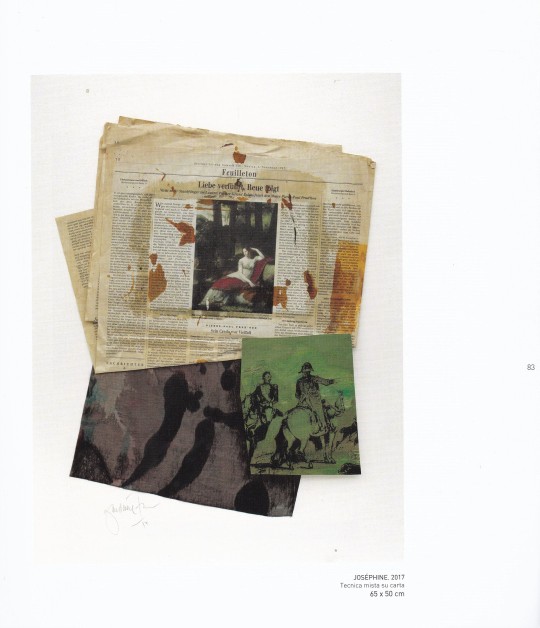


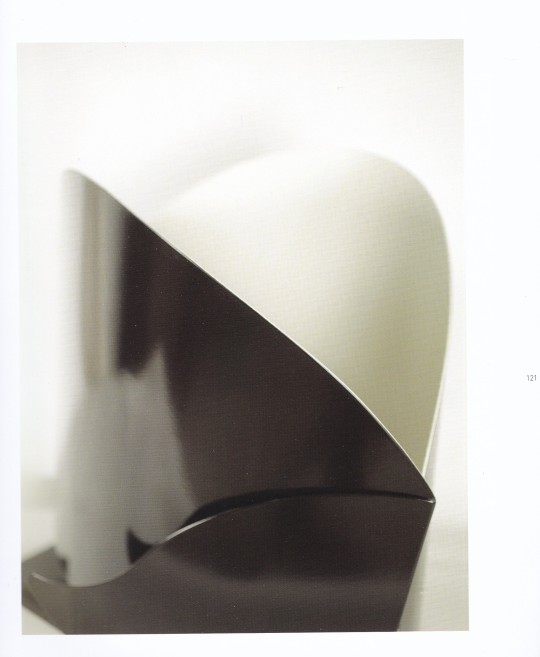

Napoléon La campagne du Monde 1821- 2021
Jean Gaudaire-Thor
prefazione di Thierry Lentz e uno scritto di Giorgio Conti
Capit, Ravenna 2021, 144 pagine, brossura, 24 x 27 cm., Isbn 978 888 956 9785
euro 25,00
email if you want to buy [email protected]
Dipinti, Opere su carta, Sculture 2015-2020 Mostra Palazzo Binelli Carrara 2022
Per il bicentenario della morte era facile con l'agiografia alimentare il mito del grande stratega militare che da Petit caporal ha creato un grande impero. La storia è probabilmente il miglior antidoto al mito. Per il progetto era necessario che questa storia poggiasse su nuove immagini, nuove interpretazioni del personaggio e così abbiamo ritenuto preziosa la proposta di promuovere, dopo Ravenna anche a Carrara, la mostra itinerante dell'artista francese Jean Gaudaire-Thor, al quale il dipartimento di Seine-Et-Marne ha dato l'incarico strategico e creativo per un'evocazione artistica, non mitografica, della figura di Napoleone.
19/04/22
orders to: [email protected]
ordini a: [email protected]
twitter: @fashionbooksmi
instagram: fashionbooksmilano, designbooksmilano tumblr: fashionbooksmilano, designbooksmilano
#Napoléon#Napoleone Bonaparte#Jean Gaudaire-Thor#dipinti#opere su carta#sculture#art exhibition catalogue#Palazzo Binelli Carrara 2022#Bicentenario morte#art books#fashionbooksmilano
12 notes
·
View notes
Text
Gourgaud has a gourmet existential experience.

10 mars 1817 :
Après une promenade à cheval, je rentre à 6 h 30. S.M. me demande, me dit d’être gai, prétend que je suis un gros enfant. Pourquoi me chagriner ? Je ne réponds pas. Elle me fait jouer aux échecs, me traite avec beaucoup de douceur.
Dîner. S.M. me parle souvent et, chose extraordinaire, fait pour moi ce qu’Elle n’avait fait encore qu’une fois, et encore pour le seul Las Cases : Elle met une cuiller dans les macaronis, m’en offre en me disant : « Allons, Gourgaud, que je vous donne des macaronis ! » Elle m’en sert deux fois, me demande comment je les trouve : « Excellents, sire, je n’en ai jamais mangé d’aussi bons. » Les Montholon enragent ; tous les gens sont stupéfaits ; on a pour moi des attentions qu’on n’avait plus.
S.M. renvoie les gens et lit Andromaque. Elle critique les vers : « Je viens chercher ou la vie ou la mort. » (1) Elle dit qu’il faudrait mettre « trouver » ; Mme de Montholon est aussitôt de cet avis, je suis contre : « chercher » laisse du vague car elle peut ne pas trouver. Coucher à 10 heures.
---
10 March, 1817 :
After a ride, I return at 6.30. His Majesty asks for me, tells me to be gay, and maintains that I’m a child. He asks why it is that I grieve. I don’t reply. He has me play chess, treats me very kindly.
Dinner. His Majesty speaks to me frequently and - an extraordinary thing - does for me what he has done only once before, and then only for Las Cases : he dips a spoon in the macaroni and offers some to me, saying « Here you are Gourgaud, let me give you some macaroni ! » He serves me twice, asks me how I find it. « Excellent, Sire, » I reply. « The best I’ve ever had. » The Montholons are furious ; all the servants are stupefied ; it’s been a long time since someone has received such attentions.
His Majesty sends away the servants and reads Andromache. He critiques the line : « seek either life or death [whether life or death to contemplate] » (1) He says it would be better to say « to find » ; Mme de Montholon agrees immediately. I am of another opinion : « seek » remains ambiguous - the end is not necessarily found. Bed at 10 o’clock.
Emphasis in the original (maintained by the 2019 Thierry Lentz edition.)
---
(1) Here’s the Racine :
ANDROMAQUE - ACTE I, SCÈNE 1 :
ORESTE :
Hélas ! Qui peut savoir le destin qui m'amène ? (25)
L'amour me fait ici chercher une inhumaine,
Mais qui sait ce qu'il doit ordonner de mon sort,
Et si je viens chercher ou la vie ou la mort ?
ORESTES :
Alas, who knows what future leads me on? (25)
Love made me seek her, the unkindest one.
But who knows what it orders for my fate,
And whether life or death to contemplate?
#gourgaud#napoleon#St Helena#racine#like the Ikea effect#except the food tastes better when Napoleon feeds you#wow they really didn't get too far into reading before an argument started did they
17 notes
·
View notes